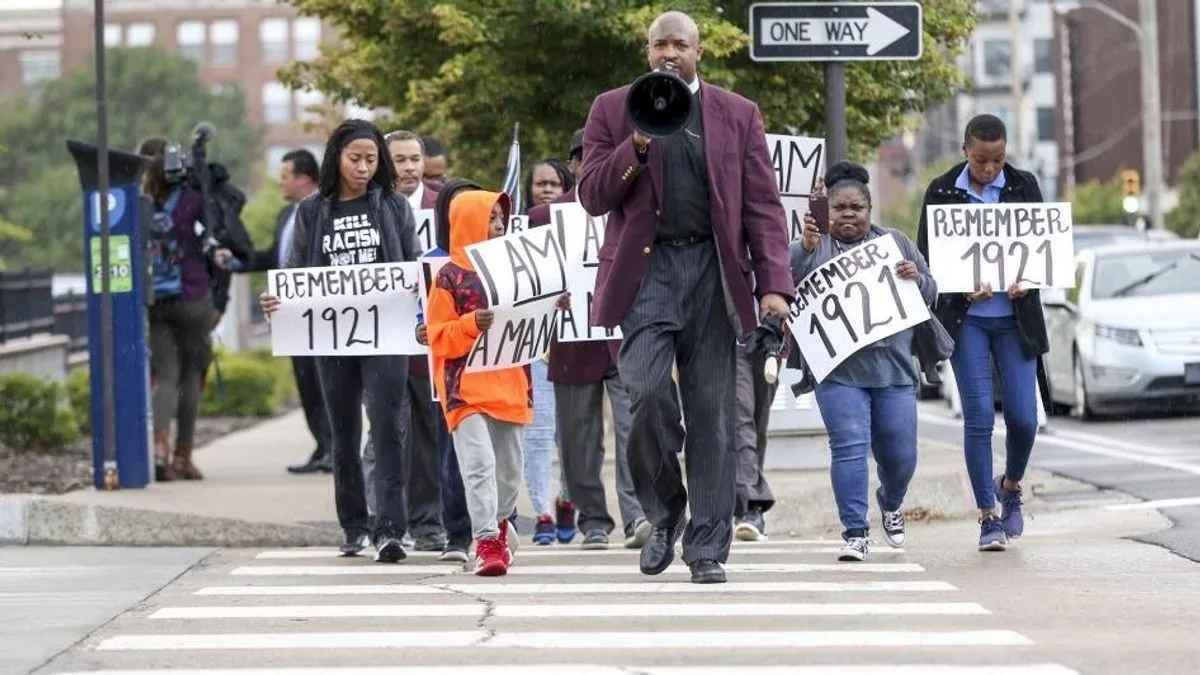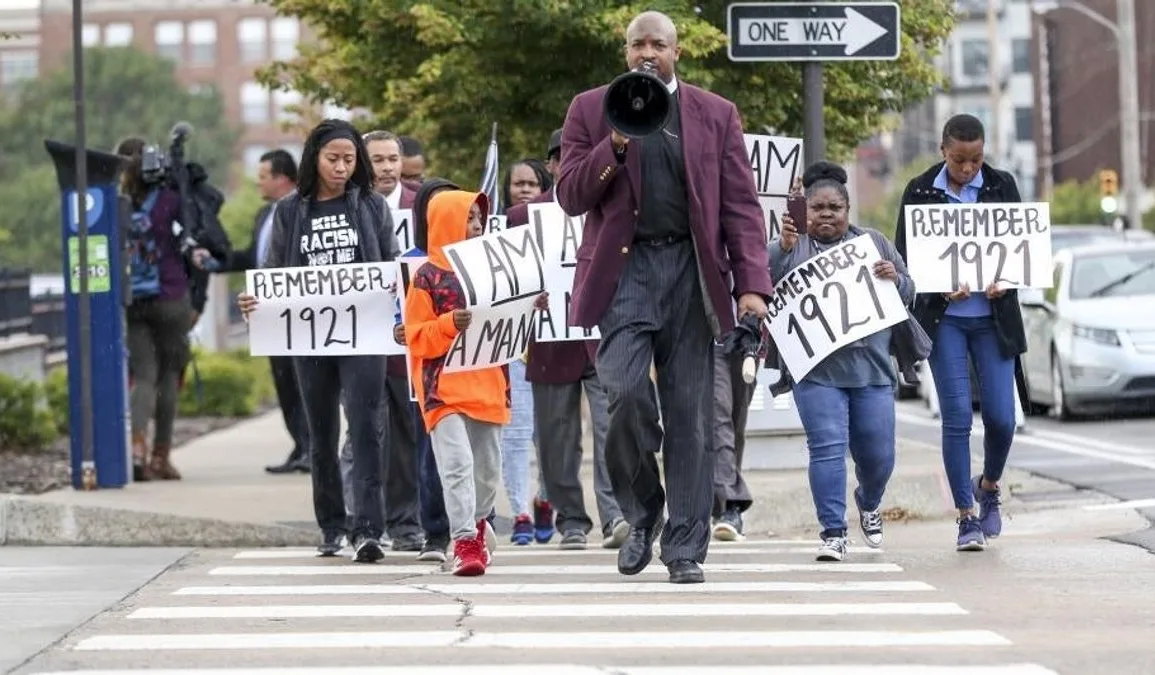
Advocacy Group Presents Reparations Report to Tulsa City Officials
In a significant stride towards addressing the historical injustices of the 1921 Tulsa Race Massacre, the advocacy group, Beyond Apology, presented a comprehensive reparations report to the city officials. The document, a product of community-led meetings held between April and July 2023, encapsulates the collective voice of Tulsans seeking redress for the devastating impact of the massacre.
A Call for Justice and Reparations
Greg Robinson, the project manager for Beyond Apology, underscored the importance of establishing a government-sanctioned task force or commission to implement reparations programs. The report emphasizes the distinction between justice and reparations, highlighting the need for targeted reparations to address the specific harms suffered by Black Tulsans over the past century.
The report outlines eight main themes for reparations, with the most significant support focusing on financial compensation, community and economic development, and investment in housing and homeownership. Robinson noted that education investment received the most backing from the community.
Economic Benefit Over the Cost of Inequality
The report highlights the economic benefit of reparations outweighing the cost of inequality. It emphasizes the potential for reparations to stimulate economic growth, create jobs, and improve the quality of life for all Tulsans.
The group has reported that the city, including Mayor GT Bynum and the City Council, has been open to collaboration on these matters. The meeting held on Thursday by Beyond Apology aimed to discuss the findings and potential steps forward.
A Step Towards Collective Change
The community hopes to educate people on the history of the 1921 Tulsa Race Massacre and work towards collective change. The report is a testament to the community’s resilience and determination to rectify the wrongs of the past.
The Beyond Apology team is advocating for the formation of a Tulsa Reparations Commission, a significant step toward recognizing and addressing historic injustices. The report is set to be presented to the City Council, followed by a public presentation.
The presentation of this report marks a pivotal moment in Tulsa’s history. It is a call to action, a plea for justice, and a testament to the enduring spirit of the community. As the city grapples with its past, the report serves as a beacon of hope, illuminating a path towards healing and reconciliation.
The reparations report presented by Beyond Apology is more than just a document; it is a powerful narrative of resilience, hope, and the unwavering pursuit of justice. It is a reminder that the echoes of the past still resonate today, and it is our collective responsibility to ensure that the injustices of history are not repeated.
As Tulsans, we must strive to create a future where all individuals have equal opportunities to thrive. The reparations report is a significant step in this direction, and it is our hope that the city will take decisive action to address the recommendations outlined in the report.
In the words of Greg Robinson, “Reparations are not just about money; they are about restoring dignity and respect to a community that has been historically marginalized and disenfranchised.”
The presentation of the reparations report is a testament to the power of collective action and the resilience of the human spirit. It is a call to acknowledge the past, learn from it, and work towards a more equitable and just future for all Tulsans.


